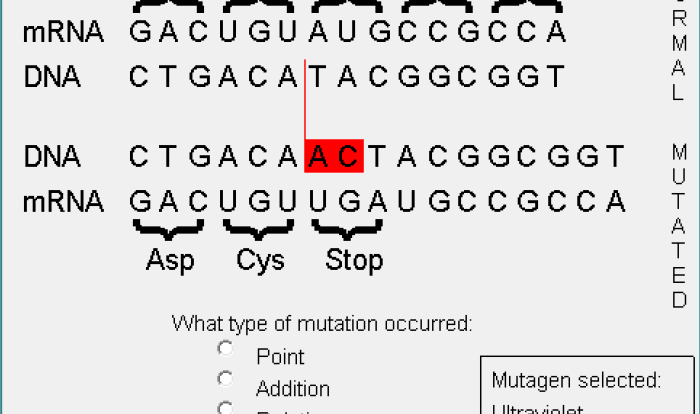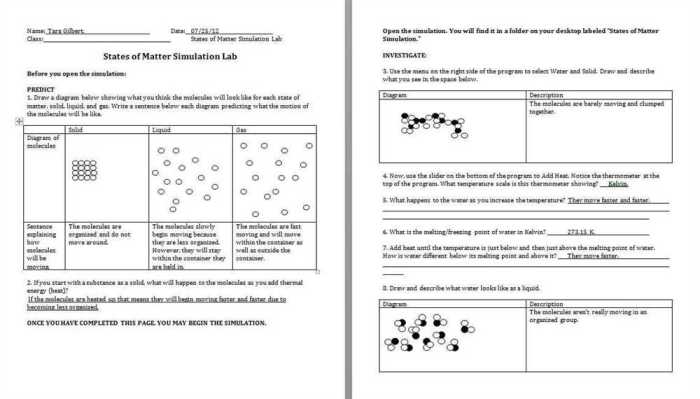Embark on a captivating journey into the realm of student exploration DNA profiling answer key, where we delve into the intricacies of genetic analysis, unlocking the secrets of identity and unlocking the potential for personalized medicine. This comprehensive guide provides a thorough understanding of DNA profiling techniques, applications, and ethical considerations, empowering you to navigate the complexities of this groundbreaking field.
Through engaging explanations and real-world examples, we explore the fundamental principles of DNA profiling, empowering you to comprehend the significance of genetic information in various scientific disciplines.
Define DNA Profiling and its Importance
DNA profiling, also known as DNA fingerprinting, is a technique used to identify individuals by analyzing their unique genetic makeup. It involves examining specific regions of DNA, which vary from person to person, to create a DNA profile that serves as a unique identifier.
DNA profiling plays a crucial role in the field of genetics, enabling the identification of individuals, establishing genetic relationships, and diagnosing genetic disorders.
Methods of DNA Profiling: Student Exploration Dna Profiling Answer Key
Various methods are employed in DNA profiling, each with its advantages and disadvantages. Polymerase chain reaction (PCR) is a technique used to amplify specific regions of DNA, allowing for the analysis of even minute samples. Gel electrophoresis separates DNA fragments based on their size and charge, enabling the visualization of DNA profiles.
DNA sequencing determines the exact order of nucleotides in a DNA fragment, providing the most detailed genetic information.
Applications of DNA Profiling in Forensic Science, Student exploration dna profiling answer key
DNA profiling has revolutionized forensic investigations by enabling the identification of suspects and victims. It is used to match DNA evidence found at crime scenes to individuals, helping to solve crimes and exonerate the innocent. However, ethical implications and legal considerations must be carefully addressed when using DNA profiling in forensic cases.
Applications of DNA Profiling in Medical Diagnostics
DNA profiling plays a vital role in medical diagnostics, aiding in the identification of genetic disorders and assessing genetic predispositions to diseases. It enables the early detection and diagnosis of conditions such as cystic fibrosis, sickle cell anemia, and Huntington’s disease.
DNA profiling also contributes to personalized medicine, tailoring medical treatments to an individual’s genetic makeup.
Data Analysis and Interpretation in DNA Profiling
The analysis and interpretation of DNA profiles involve statistical methods and software tools. Statistical techniques help determine the probability of a match between DNA profiles, while software tools aid in the visualization and comparison of genetic data. Accurate interpretation of DNA profiles requires expertise in genetics and statistics to draw meaningful conclusions.
Quality Control and Validation in DNA Profiling
Quality control and validation measures are essential in DNA profiling to ensure accurate and reliable results. Strict standards and protocols are followed throughout the DNA profiling process, from sample collection to data analysis. These measures help minimize errors and ensure the integrity and accuracy of DNA profiling data.
Case Studies and Real-World Examples
Numerous case studies and real-world examples demonstrate the practical applications of DNA profiling. The identification of the Golden State Killer, a notorious serial killer, was made possible through DNA profiling. In medical diagnostics, DNA profiling has aided in the early detection of genetic disorders, leading to timely interventions and improved patient outcomes.
FAQ Compilation
What is the significance of DNA profiling in forensic science?
DNA profiling plays a crucial role in forensic investigations by enabling the identification of suspects and victims, providing irrefutable evidence in criminal cases.
How is DNA profiling used in medical diagnostics?
DNA profiling has revolutionized medical diagnostics by facilitating the identification of genetic disorders, assessing disease susceptibility, and guiding personalized treatment plans.

